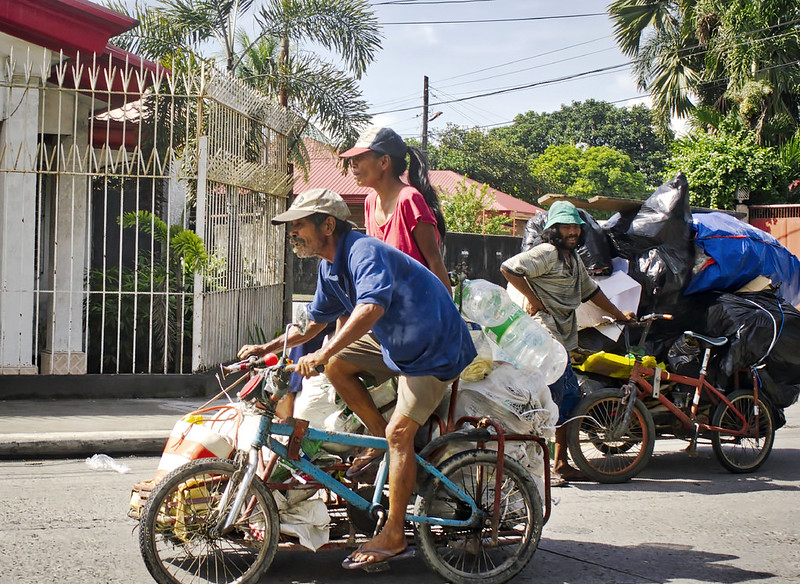Improving Waste Management in Southeast Asia
 The growth of Southeast Asia in recent decades has been startling. This growth has improved the economies and living conditions in the region and has contributed to reduced poverty rates. However, the rapid expansion of industry and population size has resulted in huge waste production. Six of the top 10 countries with the highest polluting levels are in Southeast Asia. The countries have inadequate waste management systems and are not capable of handling large quantities of waste.
The growth of Southeast Asia in recent decades has been startling. This growth has improved the economies and living conditions in the region and has contributed to reduced poverty rates. However, the rapid expansion of industry and population size has resulted in huge waste production. Six of the top 10 countries with the highest polluting levels are in Southeast Asia. The countries have inadequate waste management systems and are not capable of handling large quantities of waste.
Waste Management in Southeast Asia
Currently, landfills are used, which are not sustainable due to the increasing amount of land mass needed daily. The region is the fastest-growing waste generator among the East Asian and Pacific regions. It has produced approximately a fifth of all waste produced globally. Southeast Asia is projected to produce an additional 300 million tonnes by 2030. The region is the main global center for waste imports after China banned unclean waste imports, adding to the overall tonnage of waste. By 2050, plastic waste is projected to be one-tenth of all waste produced, reaching 12,000 million tonnes.
The United Nations Environmental Assembly has identified pollution as the third great environmental crisis of our time. It stresses the need for improved waste management in the Association of Southeast Asian Nations (ASEAN). For ASEAN, investing in sustainable processes is a must if it is to continue growing and improving the livelihoods of its population. The sustainability industry is an area of huge interest to investors as it is in its early stages of development.
The Problem with Waste
Poor waste management causes a multitude of problems, including health risks, pollution, resource depletion, economic losses and environmental degradation. Harmful diseases are spread in areas of inadequate waste management, threatening public health. Economic losses occur as resources are used inefficiently to handle the waste. Subsequently, governments have to act reactively to mitigate the consequences. These consequences of ineffective waste management disproportionately impact people experiencing poverty, who live in the most polluted areas and who feel the effects of poor health and environmental degradation the most.
Finding Solutions with Technology
There is a need for ASEAN to implement more effective waste management strategies to address the consequences laid out above and to promote sustainable development. Innovation and technology are being used to tackle the waste management problem in ASEAN. The gap in the market has drawn sustainable start-ups and investors to the region. Here are three companies that are using technology to improve waste management in ASEAN:
Rezbin
Based in Iloilo in the Philippines, Rezbin won the 2024 ASEAN start-up award. It targets the habit of recycling, providing bins at certain locations where plastic can be donated. Rezbin uses technology to track plastic donations and reward individuals who do. Rezbin’s CEO has stated that it is researching other tech solutions for the waste disposable industry. They hope to move into different areas of the waste value chain in the future.
Octopus
Octopus is a circular economy start-up based in Indonesia. It is a reverse logistics platform that producers can use to track and collect used waste to prevent it from ending up in landfills. The company ensures waste can be collected efficiently, providing incentives for manufacturers to collect and recycle their waste. Octopus hires people who have previously tried to make a living picking plastics for recycling and provides them with a monthly salary. Octopus benefits the ecosystem and individual livelihoods simultaneously.
Magorium
Based in Singapore, Magorium uses technology to convert plastic waste into a material called NEWBitumen, which can be used to build and pave roads. This material can be made from all types of plastic, clean or unclean, reducing the masses of unclean plastic ending up in landfills and cutting out the need to clean all plastics. Magorium provides businesses with the ability to get rid of plastics sustainably without them ending up in landfills, incinerators or the ocean.
The Future
Investment in improving waste management in ASEAN can lead to better outcomes for the region’s economies. The cost of uncollected waste is approximately five times higher than it would be to implement a sustainable waste management system. Start-ups using sustainable technology can help economies implement sustainable waste management systems and create a competitive market focused on sustainable development and waste reduction.
Revenue made from more efficient systems can be reinvested in the local economy and into initiatives tackling poverty. Overall, improving ASEAN’s ability to tackle its waste issue can benefit the poorest of society, who suffer most from the consequences of poor waste management.
– Lauren Alkhalil
Lauren is based in London, UK and focuses on Technology and Solutions for The Borgen Project.
Photo: Flickr
